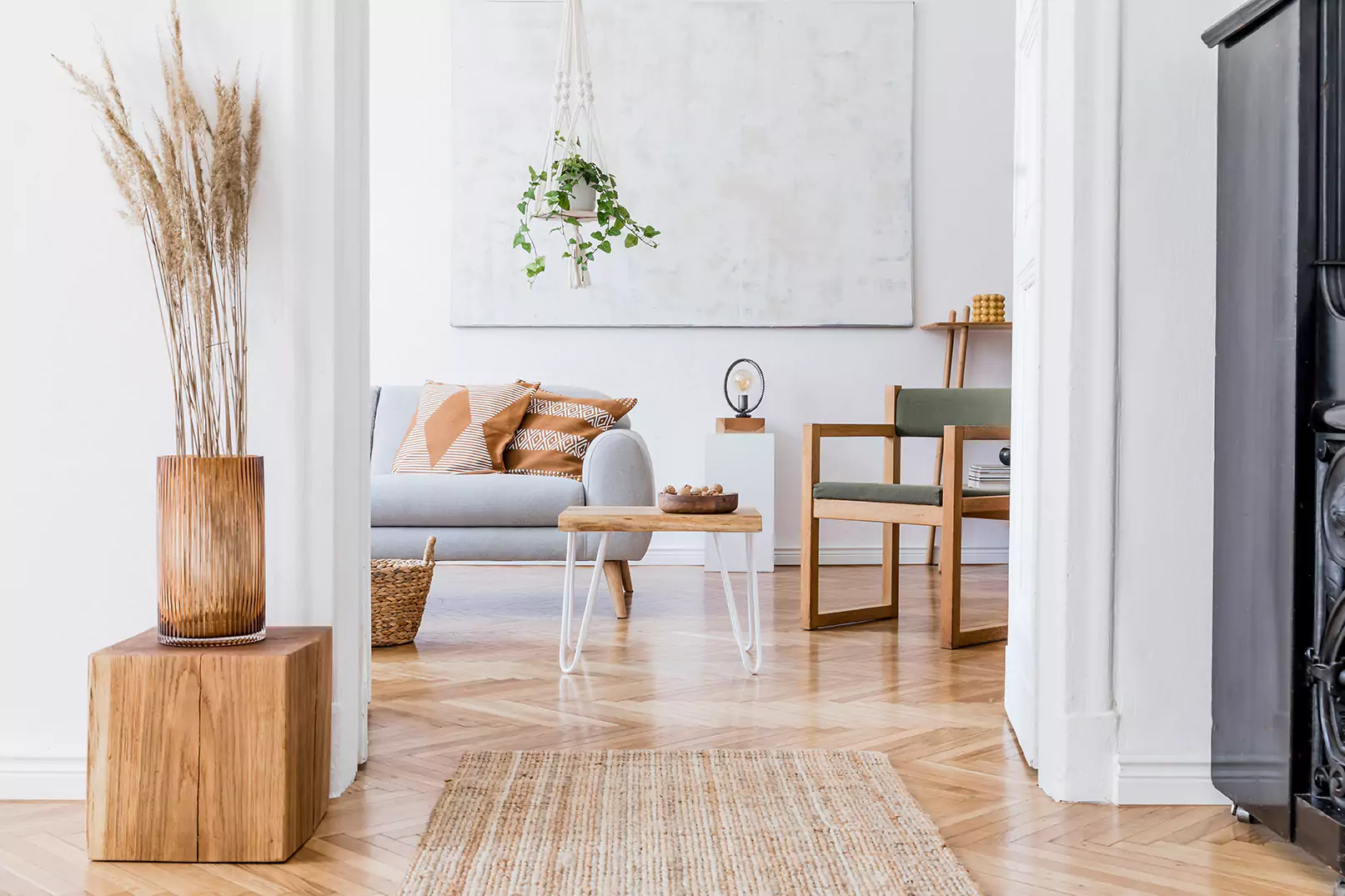In this guest blog series, professional organizer Sarah Grierson-Dale offers a fresh perspective on the subject of home organization and how we relate to our possessions. Through studying the patterns we perform in our daily lives, Sarah offers advice and tools for change as well as anecdotes of transformation she herself has experienced as well as witnessed in her work with clients. Learn more about Sarah at ebbandfloworganizing.com and send any questions to [email protected].
Happy 2021 Everyone! I don’t know about you, but I feel like we have turned a corner. After the holidays and political intensity, I have finally settled into my new apartment and have been busy making home improvements while continuing to ruminate on the subject of stuff and our relationship to it.
In my first article, I referenced the energy flow of objects and stuff flowing in and out of our lives. This month, I have been thinking a lot about this in terms of how we make decisions to keep or get rid of something. Having moved so many times, I have had to make a lot of decisions about what to keep and what to let go of. Mostly I have no regrets because these decisions were made under specific circumstances and always with one ear listening to my intuition.
Marie Kondo talks about the feeling of a possession “sparking joy” which I think has a lot of validity, but what I experience and see most often in working with clients is that we have an instant gut reaction to objects. We know how we feel and then we either rationalize or justify the feeling away and then make the decision to keep or let something go. Sometimes we really don’t know how we feel, but I have found most often we do. It’s just whether we want to admit it to ourselves and listen to our intuitive guidance. Below are a few examples of experiences I have had with various clients.
I often hear the phrase, “This was a gift so I can’t get rid of it.” While it may sound harsh, I believe that if you do not want something someone gave you, you can and should let it go. Don’t shoot the messenger!
Here’s my logic: The gift was given, it happened already. The most important part of the experience happened; the person thought about you, made or bought the gift, gave it, accepted it, appreciated it, enjoyed it, felt the love and intentions, and now it can move on into its next phase of existence. If keeping a gift elicits feelings of guilt or that weighted-down feeling of obligation, then that’s all the more reason to allow someone else to enjoy it. Give it away and move the energy.
I don’t know about you, but I don’t go to my friends’ houses and scan their homes for all the gifts I have given them over the years. That’s a fear I hear a lot, and in those instances, if a friend or family member will be truly hurt, then let it stay.

Another thing I hear a lot is, “I spent money on this so I don’t want to just throw it away.” Practically speaking, this is a legitimate concern and really depends on the item. But, as most things boil down to time versus money, I can say my rule of thumb is if something costs over $200 then it is worth trying to resell it. Otherwise, I think it’s not worth the time it takes to try and get your money back.
I see clients get hung up on money they spent years ago and feel angry that they have to give it away. Here, I will say a sense of charity and gratitude is needed to remedy the feelings that come up. Ultimately, organizing one's life means clearing out the old to make room for the new. It’s a logical formula that gets interrupted by so many emotions.
In this case, I see anger at the very object in question for having to make the decision, resentment for the perceived idea that you are giving away something that cost you so much at the time of purchase, and the almighty fear of not having enough. These all lead to a hoarding mentality which leads to literally hoarding possessions. Charity and gratitude are the antidotes to this mentality.
Being grateful to an object for all its service to you, grateful that at one point in time, you had the ability to buy the object, and the charity of heart knowing that in letting it go, another person can use it in time at a cost they can afford. Also, knowing that maybe that object might bring them the same good feelings you had when you first got it. When you make the decision from that place, it becomes less of a burden and frees you up to be happy for yourself and others. It becomes less about you, and more about your place in the bigger picture of humanity. I personally find this liberating and interesting, how such a seemingly small decision can have such a reverberating positive effect.
I will end with a personal story in this regard. As I have mentioned, my early childhood was a chaotic one. I grew up holding on to my baby blankets and toys with an unhealthy sentimentality but one I don’t judge myself for.
Two years ago, at age 36, I had to face the fact that if I wanted certain parts of the past to be reconciled, I had to let go of the physical manifestations of the weight I was carrying from my past. This meant donating my baby blankets clothes and many toys.
I rationalized for years that, “If I have a baby, it can wear my clothes and play with these toys, and use the blankets.” This was a disguised justification for simply not wanting to let go of my past because I was so afraid to face my future.
Psychologically, I felt afraid to grow up and be an adult. My attachments to the past were keeping me perceptively safe, but in reality, they were stunting my evolution and maturity. I had to see too that, if I didn’t let my own baby self go, there would never be room for me to become a mother.
This is deep, I know, but this is why this subject is so important to me. I also saw the tragic comedy and creep factor in the imaginary scenario of having a baby and then using all my baby stuff almost 40 years later. I don’t think this is inherently wrong, I just emphasize that, in my case, you can see how holding on was stunting me.
It took me months, and the blankets were the hardest part. They had acted as security blankets during some very traumatic experiences, but I knew I had to say goodbye. I had them by the door, in the garage, in and out of my trunk, back in the closet, and by the front door again, until one day I ripped off the band-aid and just simply put them in a clothing donation bin. Then I sat in my car and cried.
Then I stopped and went on with my life.
Two years later, I find this story pretty comical, but at the time it was painful. That being said, I never would have gotten to the comedy without the tragedy. I also wouldn’t have evolved into the woman I am proud to be today. I have never regretted doing that. It was an important and tremendously healing process.
I watched myself go through the rationalizations and justifications for months and allowed myself the freedom to be such a weirdo, trusting the day would come when I felt ready enough to let it all go. When I think about those blankets now, I take great solace in knowing that they still exist somewhere in the world, maybe in the hands of someone else, maybe in another country, maybe in the dump — who knows — but the important and priceless lesson I learned is what makes me feel the most joy and gives those objects the most value.
Thank you,
Sarah Grierson-Dale
